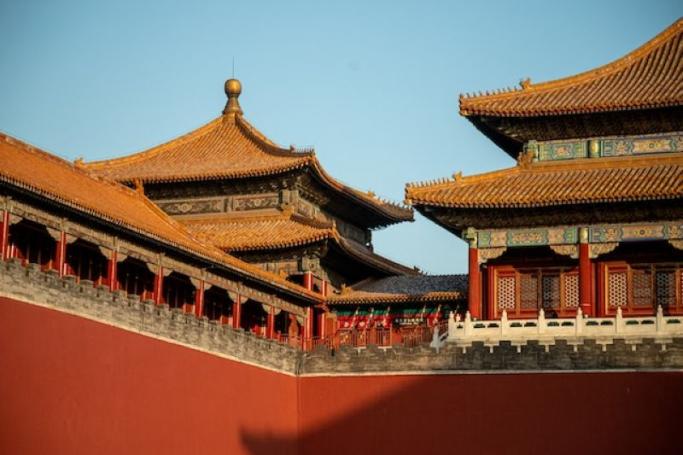Elaine Danziger
The Chinese government’s often repeated phrase of “win win” and non-interference in other countries’ internal affairs is nothing but a veil to conceal the real driving motive which is its own expansion of trade and connectivity.
The Myanmar state is under increasing isolation from the international community, But China still finds merit in increasing its interaction and trade with the Myanmar military regime. The Chinese administration motto of non-interference in internal affairs can be ideally described in Myanmar as party agnostic but religious Chinese trade and infrastructure.
Kachin Women's Association (KWAT) based in Thailand which is a non-profit organisation working on behalf of Kachin women in its recent detailed report released on 9 October 2023 brought out the key theme of the repressive behaviour of the Myanmar junta also referred to as the State Administrative Council (SAC) led by Min Aung Hlaing, Chairman of the SAC.
The main thread from the KWAT report as well as from USIP (United States Institute of Peace) reports is that China is the key player in instigation of the violence taking place in Myanmar over the last two years. The interests of the Chinese reside in the Belt and Road Initiative (BRI) and China Myanmar Economic Corridor (CMEC) projects and connectivity from the west coast of Myanmar to China.
In the recently concluded 3rd BRI forum held in China two key members of the Myanmar junta were invited, Deputy Prime Minister and Transport and Communications Minister General Mya Tun Oo and Minister of Union Government Office Ko Ko Hlaing, who previously served as an advisor to former President Thein Sein. However, the Chairman of the SAC was not invited to maintain the facade of distance for the international community.
In the white paper released on the occasion of the 3rd BRI forum, the key projects and there progress in Myanmar were highlighted such as under “The construction of economic corridors and international routes...” - namely the China-Myanmar Crude Oil and Gas Pipeline has been completed and entered service. The feasibility study on the Muse-Mandalay section of the China-Myanmar Railway has been completed, and the feasibility study on the Mandalay-Kyaukphyu section has been launched. In the Maritime connectivity area: preliminary work is currently under way on the Kyaukphyu Deep-sea Port project in Myanmar, including geological exploration and environmental and social assessment. China has at least 597 investment projects in Myanmar, totaling about US$21.9 billion in value, according to junta investment and foreign economic relations minister Dr Kan Zaw.
With all these interests which the Chinese have invested in, their primary motive has been safety of these by having a relationship as well as by supporting the present military junta in Myanmar. Contrast this with the silence of the Chinese government on the growing violence by the junta in Myanmar especially along the CMEC.
The KWAT data clearly shows escalation in attacks and abuses against civilians by the SAC regime’s forces in Kachin State and northern Shan State since mid-2022, including a sharp increase in the number of victims of aerial bombardment and villagers forced to be human shields.
Most of the abuses have taken place along key transport routes which the regime is attempting to secure
to expedite projects under China’s CMEC project. With conventional warfare failing against the resistance forces, the regime is increasingly resorting to collective punishment of civilians to try and assert control over these contested territories.
It also recommends reducing or stopping the CMEC projects in Myanmar amid war and against the wishes of local communities. These projects should be cancelled, and no new investments considered until the military regime is removed and elections held under a new federal democratic constitution, guaranteeing free, prior and informed consent of local communities to any new projects.
The Chinese non-interference in countries has yet another cross against it - in December 2022, China’s new special envoy for Myanmar, Deng Xijun, held his first meetings with seven of Myanmar’s most powerful ethnic armed organisations (EAOs). During a series of subsequent discussions, Deng expressed two policy positions. Firstly, that China would more actively enforce its policy against instability along the border. Secondly, that the EAOs should distance themselves from the National Unity Government (NUG), an opposition body established by lawmakers ousted by the coup, because the NUG had grown too close to the West.
The Chinese playing both sides to further their objective can be clearly seen in Myanmar. They feel they need to play the two sides against each other depending on the urgency of the situation, an action that appears to be their hallmark.
Thus, we see the aggressiveness of the Chinese government in furthering their CMEC programmes by co-opting the Myanmar regime and ignoring the human right violations, pressuring a regime looking for legitimacy in an increasingly isolated world. This is the real face of the “win-win” philosophy of the Chinese government.
Elaine Danziger is the pseudonym of a journalist who covers Asian affairs.












